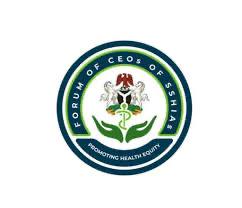In a decisive move to enhance public confidence in generic medicines and align Nigeria’s pharmaceutical industry with global standards, the National Agency for Food and Drug Administration and Control (NAFDAC) has mandated bioequivalence studies for all generic drugs produced or imported into the country. This regulatory shift was announced by NAFDAC’s Director General, Professor Mojisola Adeyeye, during a press briefing on Thursday in Lagos.
The new policy aims to eliminate substandard and ineffective medications from the Nigerian market by ensuring that generic drugs match their branded counterparts in therapeutic efficacy and clinical performance. Bioequivalence studies are scientific evaluations that confirm whether a generic medicine delivers the same dosage of active ingredients as its brand-name equivalent, with similar safety and efficacy outcomes. Prof. Adeyeye emphasized that this initiative would boost trust in generic medications while promoting rational prescription practices.
“By mandating bioequivalence studies, NAFDAC is strengthening its regulatory framework to safeguard public health. This measure enhances trust in generic medicines, promotes rational prescription practices, and aligns Nigeria with global pharmaceutical standards,” Adeyeye stated.
To ensure smooth implementation, NAFDAC has launched a strategic roadmap that includes issuing detailed regulatory guidelines for Contract Research Organizations (CROs) conducting these studies. These guidelines, along with a “Note to Industry,” have been made publicly accessible through NAFDAC’s official website. The agency is also investing in capacity building by organizing nationwide training sessions for healthcare professionals, researchers, and pharmaceutical companies to ensure unified understanding of bioequivalence requirements.
Despite the positive reception of this policy within the healthcare sector, challenges remain. Nigeria currently lacks sufficient bioequivalence laboratories, which poses hurdles for local manufacturers and researchers. Stakeholders will need to invest heavily in clinical trials and advanced testing methodologies to meet NAFDAC’s stringent standards. However, this regulation is expected to drive collaboration between pharmaceutical companies and research institutions while fostering innovation within the industry.
The mandatory inclusion of bioequivalence data in drug registration dossiers is set to take effect by January 2026 for both locally manufactured and imported products. This phased implementation will initially focus on essential drug classes such as antimalarials, antibiotics, and treatments for neglected tropical diseases.
NAFDAC’s bold regulatory update reflects its commitment to creating a safer pharmaceutical environment for Nigerians while positioning the country’s industry for international competitiveness. By enforcing rigorous scientific evaluations, the agency aims to elevate Nigeria’s drug safety standards and reduce reliance on imported medicines. As Prof. Adeyeye aptly noted, “Collaborative efforts between healthcare institutions, professionals, and manufacturers are crucial to building a reliable regulatory system that guarantees safe and effective medications for all Nigerians.”







